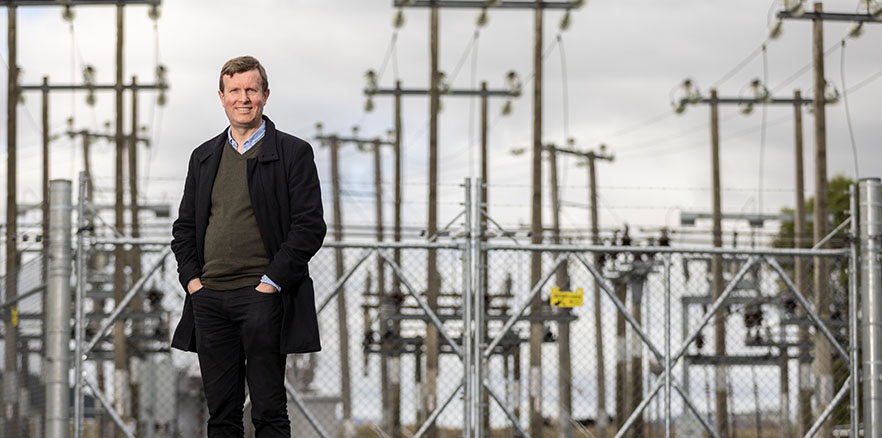
Dr Peter Gibbard
A study into why people choose to switch electricity providers not only provides an interesting insight into consumer behaviour, but also has important real-world implications – a combination that speaks to the unique career of its lead researcher.
University of Otago's Dr Peter Gibbard isn't your typical academic.
Until just two years ago, the Economics Lecturer was grounded firmly in the “real world” of Australia's public sector, working as a principal economist at Australia's Competition and Consumer Commission. Prior to that 10-year stint, he worked in the UK as an economic analyst in the Financial Stability Division of the Bank of England.
But the attraction of conducting further technical research meant a switch to academia, and in 2019 he obtained his PhD from the Australian National University's Research School of Economics before accepting a job at Otago.
“While there were opportunities to conduct technical research in my past public sector jobs, it was considerably more limited than the opportunities in academia,” says Gibbard.
“What I'm really interested in is research that can help inform government policy and has real-world implications for consumers.”
Gibbard's latest research is a case in point – exploring what drives Kiwis to choose their energy providers and what makes them switch. From a theoretical point of view, Gibbard says it is interesting because it is a complicated choice – a choice often made with limited information – but also of great real-world importance. “The more people switch providers, the more this impacts on electricity prices by driving competition between suppliers. But if people are hardly ever switching, then prices are unlikely to go down. People's behaviour of whether they switch or not impacts on the prices we end up paying for our electricity.”
While in its early stages, the New Zealand-first study, supported by a Commerce Research Grant, aims to delve into the high degree of customer inertia that exists in Aotearoa New Zealand's retail electricity market. Even in response to price changes, or government initiatives such as the “What's My Number” marketing campaign designed to encourage consumers
to compare electricity prices, many customers will not search for better deals, let alone switch from existing retailers.
Gibbard and his team are working with Powerswitch, Consumer NZ's free, independent service, conducting analysis on industry data to identify the principal cause or causes of customer inertia. This will start with the most commonly cited reasons for not switching – the “unawareness explanation” (consumers may be unaware of price differences between their provider and alternative providers); the “switching cost” explanation (a perceived cost of switching, including the effort it takes); and the “product differentiation” explanation (the belief that distinct retailers provide differentiated products and, moreover, they prefer the product provided by their retailer).
Gibbard says consumer inertia has important implications for public policy around concerns about affordable energy, economic inequality (many low income families are particularly affected by the burden of high energy costs), economic growth and competitiveness and innovation in the electricity industry.
“Understanding better why people choose to stay with their existing suppliers, which in turn creates less movement on power prices, could influence where to direct government investment or policy. For instance, if it's about the failure to search then perhaps there should be more marketing of a Powerswitch, for example, or if it's about the hassle cost, then the government could look at ways that make it easier for people to switch. Or if people just prefer their retailer to other retailers, then there might not be any role for government policy at all.”
Recent awards
- Commerce Research Grant (2022);
- Rhodes Scholarship (1991)
Funding
- Commerce Research Grant
More stories about early career researchers
This story is part of the research publication 'He Kitenga 2022: Talented Futures', which presents the different pathways into research that early career researchers follow.
